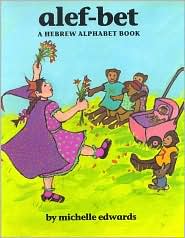While working on my first piece for Kveller.com about Jewish books, I came across this old piece, written for The PJ Library that never made it to my blog.

When I was a child, the very first stories I read about Israel were from K’tonton in Israel, a book about a thumb-sized boy who travels to the Holy Land as a stowaway in a suitcase. I learned many things about Israelis from that book. First of all, they recite a LOT of quotes from the Bible. They also go to receptions at the president’s house, ride goats, eagerly invite foreign visitors into their homes, and work the soil with their bare hands. Then they usually recite more quotes from the Bible.
According to the inscription in my book, it was 1975 when I received Ktonton in Israel as a prize for the My Favorite Book Contest at Beth Israel Synagogue. At that time, children’s books gave us an idealized, almost mawkish, impression of Israel. Consequently, we didn’t think of it as a place where people did laundry, went to the supermarket, and had jobs like our parents. Instead we imagined them spending most of their time planting the trees that we dutifully raised money for each year on Tu B’shevat.
A few nights ago, my children and I read Alef Bet – A Hebrew Alphabet Book by one of my favorite author-illustrators of Jewish books, Michelle Edwards. It’s from an entirely different generation of books about Israel. On the surface, it’s just an alphabet book in Hebrew. Each page is devoted to a Hebrew letter, and teaches one Hebrew word beginning with that letter. But the illustrations tell a story all their own, of a Hebrew-speaking family with a real life, just like yours, mine and our children’s. The parents do housework, the children have pillow fights, and the baby even makes poopy in his diaper. Instead of drawing conclusions about all Israelis, my children were fascinated with this one family. Why is the boy in a wheelchair? Why is the girl spraying water all over the bathroom? Look at their pretty tea set!
For many of us, it can be hard to find messages about Israel that we are comfortable with. They may have an implicit or explicit perspective that we disagree with, or perhaps they ignore issues that we wish were broached. They over-idealize, or they are too critical. What a pleasure it was to spend bedtime last night with an Israeli family just like our own.

